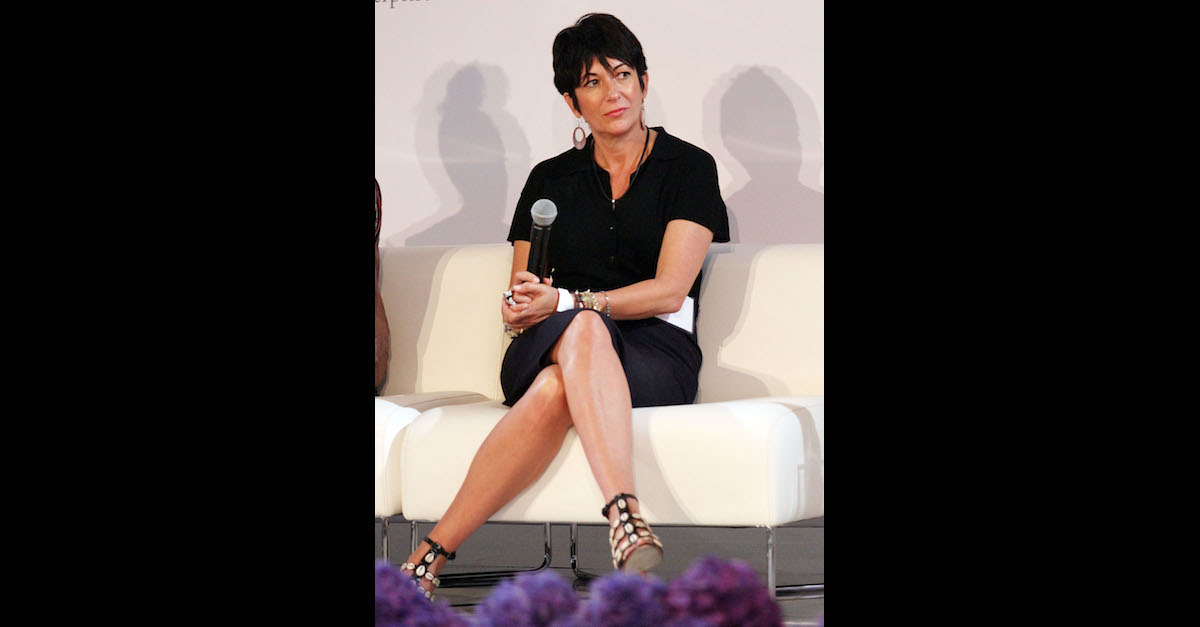
Ghislaine Maxwell, who faces federal criminal charges of enticement of a minor to engage in illegal sex acts, transportation of a minor to engage in illegal sex acts, conspiracy, and perjury, is accusing the Miami Herald of trashing her reputation and, in essence, of attempting to destroy her right to receive a fair trial. The Herald and its investigative reporter, Julie K. Brown, have been widely praised and awarded (example 1, example 2, example 3, example 4) for their aggressive coverage of the now-dead and infamous pedophile sex offender Jeffrey Epstein and, concomitantly, of Maxwell, his longtime associate.
Maxwell levied the complaints against the Herald in a lawsuit to determine whether a second cache of documents in a defamation case between Maxwell and her accuser Virginia Giuffre Roberts will be unsealed by Monday. The Second Circuit Court of Appeals on Friday issued a stay on the documents’ release pending an appeal; in essence, the court pumped the brakes on the release of the highly anticipated materials.
The following words appear in a document filed by Maxwell’s lawyers on Friday before the Second Circuit. Maxwell’s lawyers are arguing in favor of keeping the documents secret:
As Ms. Maxwell said in her Motion to Stay, “[t]he media has all but convicted her.” In hindsight, this appears to have been an understatement.
If the Miami Herald is to be believed, “The documents at issue have been improperly sealed for years—in a way that allowed . . . Ms. Maxwell[’s] . . . abuse of young girls to go on unchallenged and unpunished, and allowed a legal system that protected perpetrators over victims to go unquestioned.” This unqualified statement of Ms. Maxwell’s alleged guilt is precisely the type of unfair and unconstitutional pretrial publicity that will result should the district court’s unsealing order go into effect.
[ . . . ]
[I]f the Herald is willing to announce its conclusion that Ms. Maxwell “abused” young girls even before having access to the sealed deposition materials, that is only a harbinger of what media coverage will result should the material be unsealed, coverage that will prejudice Ms. Maxwell’s constitutional right to a fair trial by an impartial jury.
The Maxwell argument further trashes the Herald‘s assertion that the documents have been “improperly sealed for years” by blaming — you guessed it — the Herald.
“[T]he Herald entirely ignores its own conduct,” Maxwell’s attorneys argue. “[T]he Herald did not move to unseal anything in this case until 2018, one year after the case was closed.”
Said another way, Maxwell’s attorneys are blaming the Herald for not acting fast enough to unseal documents which Maxwell’s attorneys say should not be unsealed.
Self-styled journalist Michael Cernovich — he is also sometimes referred to in other ways — rubbished Maxwell’s argument that the Herald was late to enter the proceeding by telling the Second Circuit that he had long been after the same documents himself:
While the Court should not give any credence to Ms. Maxwell’s argument in her motion that the First Amendment interests at issue are not harmed because the Herald did not seek to intervene until after the May 2017 settlement, Mr. Cernovich had been seeking to learn what atrocities by Maxwell and Epstein were wrongly concealed on the docket prior to that settlement. Three and a half years is too long to suppress the First Amendment right of access. No stay is warranted.
If the documents are not kept under wraps, Maxwell says her Fifth and Sixth Amendment rights against self-incrimination and in favor of a fair trial with an impartial jury will be irreparably harmed.
Such fears by Maxwell could arguably and easily be seized upon by her critics to imply that Maxwell said something in the still-sealed documents which could come back to haunt her.
That inference, obviously, was not fully developed by Maxwell’s attorneys. Instead, attention was turned again to the Herald, which is among the independent parties seeking to pry the documents into the light of day. Maxwell’s attorneys said the Herald‘s proffered notion that the public interest would be best served by the release of the documents was actually quite backwards:
“The Herald trivializes the public’s right to see that its justice system provide fair trials,” the Maxwell argument concludes. “With Ms. Maxwell facing an imminent and very public trial, the justice system should endeavor to do all it can to vindicate the ‘theory of our [trial] system is that the conclusions to be reached in a case will be induced only by evidence and argument in open court, and not by any outside influence, whether of private talk or public print.'”
Read several of the relevant court papers below, including an earlier argument by the Herald in favor of releasing the cache of Maxwell/Epstein documents.
Ghislaine Maxwell – Docket #19 – 2nd Circuit by Law&Crime on Scribd
Ghislaine Maxwell – Docket #25 – 2nd Circuit by Law&Crime on Scribd
Ghislaine Maxwell – Second Circuit Stay by Law&Crime on Scribd
[image via Laura Cavanaugh/Getty Images]
[Editor’s note: internal punctuation and citations within legal quotes have been omitted.]